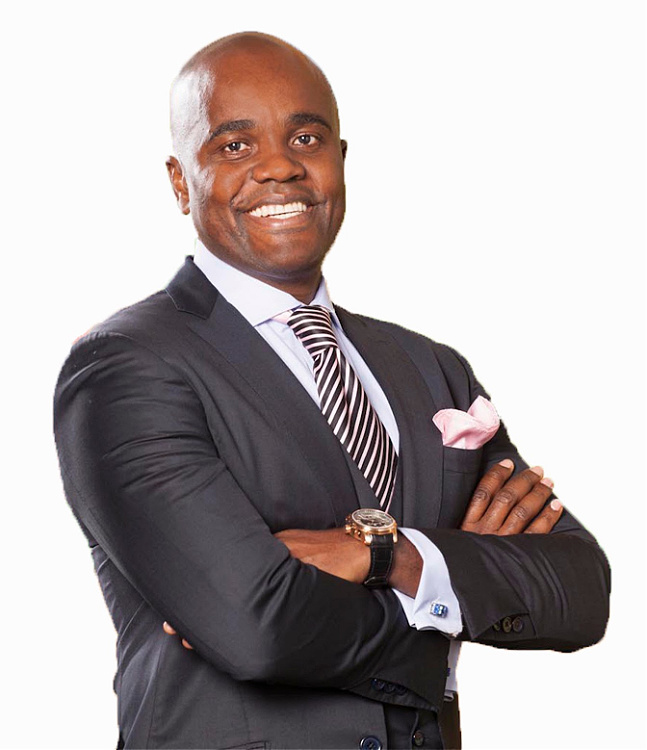There was a definite buzz in the air. One Friday afternoon in early May 2021, a group of students, alumni and engaged community leaders convened in a Zoom classroom for the final installment of an experiential, independent study project course which came to be known as the BlackNorth Initiative (BNI) class at Rotman.
Throughout the semester, small teams of Rotman students, alumni and Black community leaders and influencers had worked closely with different BNI committees to tackle problems ranging from affordable housing to improving inclusion in sports.
For the last class, they were joined by BNI’s community partners — including board members and leaders from various non-profit and private organizations — who were eager to see what the class had accomplished over the semester. With instructor Wes Hall moderating, everyone fell into a respectful silence as groups presented what they had found through their research and their proposed solutions.

Wes Hall
Chairman and Founder
BlackNorth Initiative (BNI)
As the class went on, the mood became reflective. It was clear that the participants felt like they had taken part in a very special course.
“It’s so rare to find a course that gives you the opportunity to make a direct, positive impact in the community,” explains Deborah Chima (BCom ’21).
Chima’s group spent weeks collecting data, conducting interviews and working closely with the BNI Housing Committee to develop a marketing plan for the committee’s home ownership bridge program, focused on helping low-to-mid income Black families achieve home ownership.
“Up until that point, I had never been in a class that spoke directly to Black students about what it takes to be a leader, pursue entrepreneurship and inspire change,” she says.

Deborah Chima (BCom ’21)
A different kind of class
It’s inspiring to know that this course was made possible, in part, thanks to a group of Rotman students. Last summer, as the School was recognizing it needed to do more about systemic racism and representation, students across the Rotman School called for classes that were taught by people of colour and that incorporated course materials featuring diverse protagonists.
“They challenged us to provide learning experiences that would speak directly to the Black experience and the obstacles and barriers that so many Black leaders face — it was something we had never really addressed in our courses, but needed to,” explains Joe Milner, Vice-Dean of MBA Programs.
The School found an enthusiastic partner with the BNI and Wes Hall, executive chairman and founder of Kingsdale Advisors. In the summer of 2020 — in the wake of the Black Lives Matter movement and cries for social and racial justice — Hall used his profile, connections and influence to draw attention to the mission of ending anti-Black systemic racism in Canada. He founded the Canadian Council of Business Leaders Against Anti-Black Systemic Racism, which leads the BNI in taking a business-first mindset to ending anti-Black racism.
Hall, BNI and Rotman course curators Neel Joshi, director of the Office of Student Engagement, and Ann Armstrong, academic director of the Intercultural Skills Lab, saw an opportunity to develop and deliver a course unlike any other offered at Rotman — or any other business school in North America.
The cases used in classes featured people of colour. Prominent Black business leaders — including Michael Lee-Chin and Prem Watsa — served as guest speakers. Class discussions addressed issues of race and discrimination, head on.
To prioritize access, they also opened up enrollment to Black community leaders across Canada who were identified by BNI and by the Black Opportunity Fund (including resident leaders from Toronto Community Housing). Though many of the students in the class were enrolled in the Rotman School’s MBA programs or other programs across U of T, they were also joined by Black alumni from the Rotman MBA, JD/MBA, and Global Executive MBA programs.
The message was clear: this wasn’t a course a student took simply to earn credits to graduate, it was about engaging in meaningful discussions that highlighted the Black perspective in business and capital markets.
Learning the meaning of allyship and why representation matters
Due to popular demand, the BNI course will be running again in the 2021-22 academic year, with Hall returning to lead the new class.
However, even with the excitement surrounding the course, the School is careful to note that this is just one step in a broader plan of combatting racism and improving diversity across the School. Notably, Rotman is currently engaged in a focused search for a new senior Black or Indigenous faculty member and is actively working on increasing the number of diverse instructors and protagonists featured in cases and course materials.
For students like Chima, the course — in terms of its discussion and the range of experiences and backgrounds represented in the classroom — was refreshing.
“Race is not something that’s really talked about in other classes or spaces,” explains Chima. “As Black students and professionals, we had so many shared experiences to discuss. As a student, it was important to hear how alumni and established professionals navigated and felt about those experiences.”
Other students — especially those who don’t identify as racialized persons — left feeling like they had the tools be an effective ally.
“I appreciate beyond measure the space created to learn from Wes Hall, guest speakers, and my peers about business, life, and, most importantly, the challenges that so many within and beyond our classroom face living in and outside of Canada,” says student Will Kosiancic (JD/MBA ’23).
“I hope that—to the best of my ability—I can leverage those takeaways to be an ally and elevate marginalized groups' interests.”
Others saw just how much representation in the classroom mattered.
Rotman alumnus Meron Tecle (MBA ’20) was taken aback by the calibre of guest speakers.
“Too often when Black leaders or people of colour assume a leadership positions, the narrative is that they were put there, that they didn’t earn their place,” says Tecle. “It was inspiring to hear from Black professionals in our own community, who can speak about what they did and overcame. They have the proof that they deserve to be where they are.”
“It’s important for everyone — not just students, but alumni and established professionals — to hear those stories.”
Written by Rebecca Cheung | More Student Stories »